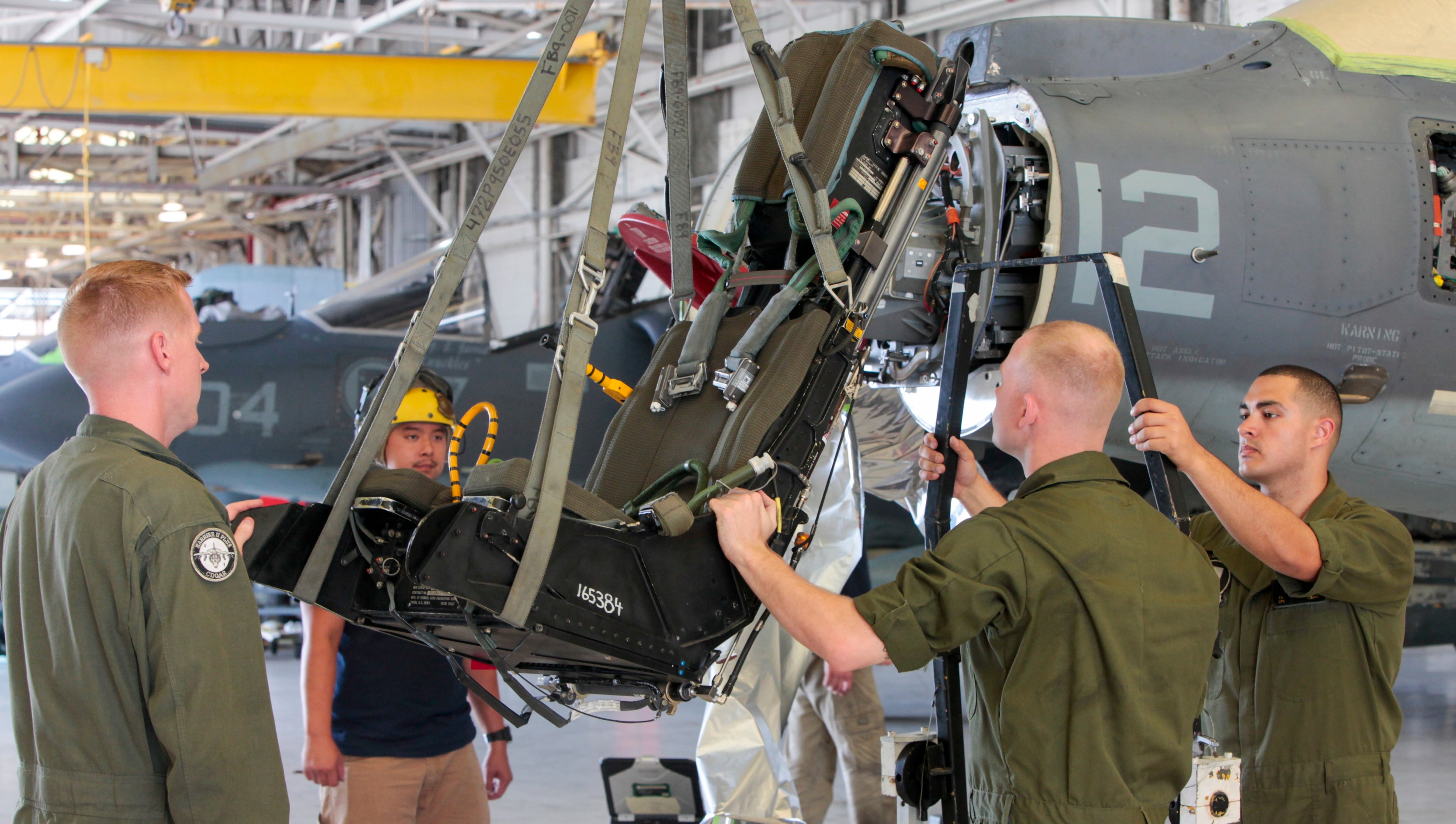A key factor underlying the Marine Corps' aviation crisis stems from the recent draw down of forces when droves of highly trained maintainers left the force a few years ago, according to a top Marine general.
Some of the Marine Corps' most experienced maintainers were allowed to take early retirement when the service shrank from 202,000 to 184,000 Marines, said Lt. Gen. Jon Davis, deputy commandant for aviation.
"We let some people go that probably – if we had better insight into who we had out there and the qualifications of those Marines inside the maintenance departments of our flying units – you'd say: 'These people can't go,'" Davis told reporters on Feb. 8.
More than half of the Marine Corps' fleet of about 1,000 fixed-wing and rotary-wing aircraft were unable to fly at the end of 2016.
Maintainers are just as important as spare parts and pilots, he said. And it takes time for maintainers to gain enough experience to become certified, collateral-duty inspectors and quality assurance representatives, whom Davis called "your surgeons in the maintenance department."
That's why the Marine Corps is giving the most experienced maintainers an additional military occupational specialty number so the service can better track them, he said.
"What we can track, we can covet," Davis said. "What we can covet, we can do a better job at trying to retain those Marines and understand their impact on the maintenance department."

Marines with Marine Attack Squadron 231, Marine Aircraft Group 14, 2nd Marine Aircraft Wing guide an ejection seat down after removing it from an AV-8B Harrier aboard Marine Corps Air Station Cherry Point, N.C., June 30, 2016.
Photo Credit: Sgt. Austin Long.
Rather than boosting the number of maintainers, the Marine Corps plans to make sure that the existing maintainers are more highly trained, he said.
"We will not grow the size of the Marine maintenance department. But we will grow the requirement to have additional qualifications inside that maintenance department," Davis said at a Feb. 1 Defense Writers Group breakfast. "So, instead of having three collateral duty inspectors in one shop, you might need four or five."
Davis acknowledged that maintainers are already extremely busy, but he believes they can be more effective with the right training. That's why he wants corporals, sergeants and staff sergeants to spend more time on the flightline mentoring lance corporals on how best to take care of aircraft.
The Marine Corps also needs to do a better job giving maintainers the parts they need to fix aircraft, he said.
"They're making mistakes, in some cases, because they're cannibalizing parts off one airplane to go make another one," Davis said. "We're having them do what I call 'negative maintenance' because we have not resourced them with the tools they need to be successful."
If Congress gives the Marine Corps more money, it would buy newer aircraft faster to alleviate the spare parts problem, Commandant Gen. Robert Neller told Marine Corps Times.
"Rather than fixing old stuff, we'd rather get new stuff and then have the proper parts support for that," Neller said in a Feb. 3 interview.
Davis said the Marine Corps "knows the value proposition of the enlisted maintainer" and he expects the service to do more to retain them.
When asked if the Marine Corps might offer new retention bonuses for maintainers, Davis replied: "We'll see. We'll see. We're looking at all options."




